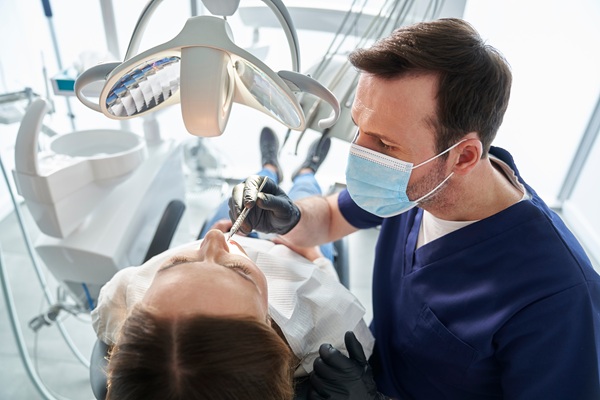 Dental implants are a leading choice for many patients when it comes to tooth replacement. Patients like the idea of a tooth replacement option resembling natural teeth. Dental implants look natural and perform like a permanent natural tooth. Therefore, there is no need to take the tooth replacement out daily for cleaning or worry about the implant slipping out of place. However, the most compelling reason to consider dental implants is their unique oral health benefits.
Dental implants are a leading choice for many patients when it comes to tooth replacement. Patients like the idea of a tooth replacement option resembling natural teeth. Dental implants look natural and perform like a permanent natural tooth. Therefore, there is no need to take the tooth replacement out daily for cleaning or worry about the implant slipping out of place. However, the most compelling reason to consider dental implants is their unique oral health benefits.
An overview of dental implants
A dental implant is a screwlike titanium post. A dentist surgically places this post into the jawbone. After a period needed for healing and integration of the post into the jawbone, it is time to place the abutment and crown on the post completing the restoration. This process can take several months and multiple steps, making it a commitment of time and effort. However, many patients consider the commitment worth it. Let us take a closer look at why.
Benefits of dental implants
Much of the attraction to dental implants stems from people's desire to closely emulate having natural teeth. Dental implants allow patients to avoid any of the pitfalls of traditional dentures. When chewing and speaking, dental implants are like natural teeth. Patients do not have to change how they do these things, like with dentures. In addition, they look natural, and there is nothing to remove for cleaning. Also, as a single-tooth replacement option, no alteration is needed to the surrounding teeth in a similar fashion to a traditional dental bridge.
How dental implants support your oral health
Like other tooth replacement options, dental implants will restore chewing function and a full smile. In addition, dental implants will maintain the smile alignment by preventing other teeth from shifting out of place. However, partial dentures and bridges can also provide these oral health benefits.
What sets dental implants apart in the area of oral health support is the stimulation provided to the patient's jawbone. An unfortunate result of tooth loss is the loss of the tooth root that supports the density of the jawbone and keeps it from being reabsorbed. Thanks to the titanium post, the jawbone continues to be stimulated, keeping it strong. This is a benefit that bridges and traditional dentures do not provide because they do not replace tooth roots.
The strengthening of the jawbone benefits aesthetics as well as oral health. The facial structure can change and sag due to jawbone loss. However, when the jawbone is maintained, so is the shape of the patient's maxillofacial area. The patient's smile is restored, and their natural facial shape is maintained.
Get Back your original smile
You may be dealing with tooth loss, but it does not have to be permanent. Thanks to dental implant technology, you can restore your full smile, facial structure, and oral health. Our team helps people like you smile with renewed confidence every day. If you are missing one or more teeth, consider dental implants.
Request an appointment or call Oak Tree Dental at 703-763-5239 for an appointment in our McLean office.
Recent Posts
Full mouth dental implants are an option that many patients choose when they need to replace their missing teeth. Our smile is the first impression we have when meeting a new person. We all want that impression to be warm and welcoming. When our smile is somewhat imperfect, we tend to lack confidence and feel…
Dental implants are the most stable dental restorations you can get. The invasive procedure will cut through your gum tissue. The dentist will drill into the jawbone and place titanium rods into the holes. The right kind of care is important to make sure that the implant site is free from infections. Here are the…
Having dental implants can correct tooth loss, which is the primary reason for getting these dental replacements. Other reasons for getting them may determine if you are a good candidate for this treatment. Knowing if you are a good candidate for dental implants can help you prepare well for your next appointments. Here are the…


